|
Genres, Themes, Actors, and Directors:
- Albert Finney Films
- Infidelity
- Karel Reisz Films
- Love Triangle
- Shirley Anne Field Films
Review:
Karel Reisz directed and Tony Richardson produced this adaptation of Alan Sillitoe’s novel, part of the new wave of “kitchen sink realism” hitting British cinema in the late 1950s and early 1960s. It’s notable for Finney’s breakthrough role as a philandering cad who at least stays true to his own morals and priorities throughout; as he describes himself: “I’m a fighting pit prop that wants a pint of beer, that’s me… I’m me and nobody else. Whatever people say I am, that’s what I’m not because they don’t know a bloody thing about me! God knows what I am.”
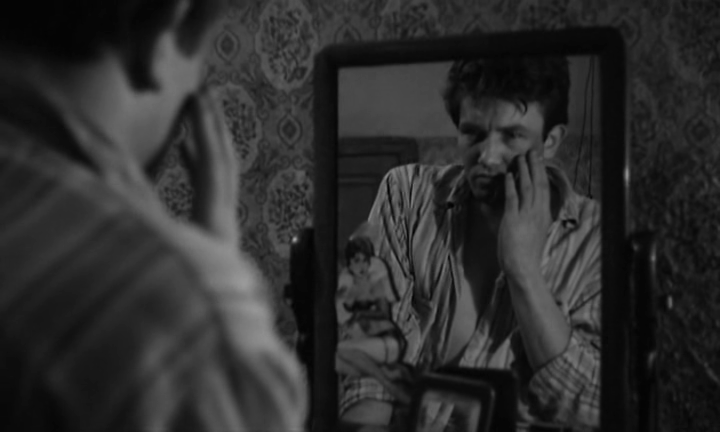
To its credit, the script doesn’t glorify or gloss over any aspects of Arthur’s existence: he works hard and gladly provides money to his household, understanding that this is an important part of his identity; and when he learns about the predicament he and Roberts have landed in, they are both shown as multi-faceted adults facing the consequences of their actions.
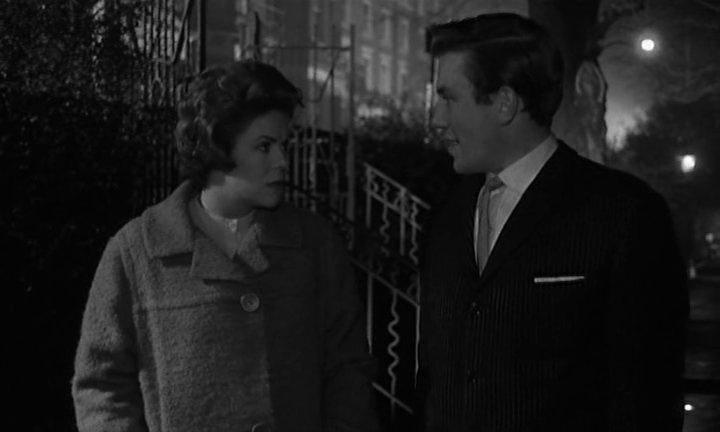
A later interaction between Finney and Pringle also strikes one as unexpectedly and refreshingly honest.
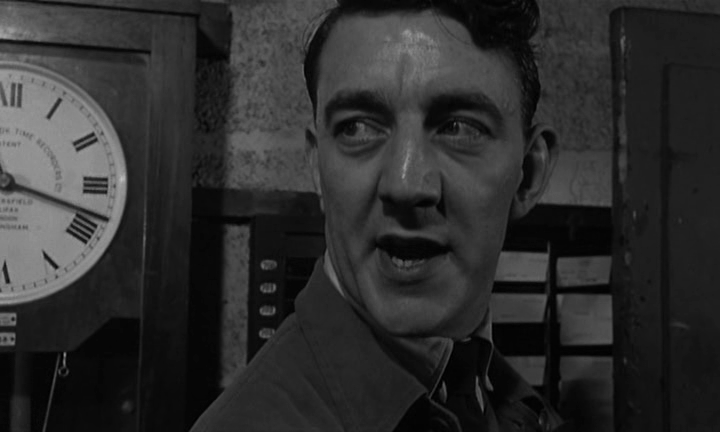
This film remains well worth a look both for Finney and Roberts’ performances, and as a fine example of the “angry young men” genre.
Notable Performances, Qualities, and Moments:
- Albert Finney as Arthur (nominated by Peary as one of the Best Actors of the Year in his Alternate Oscars)
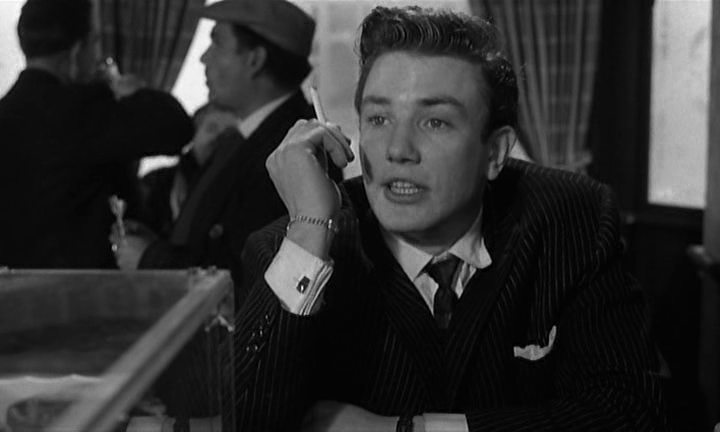
- Rachel Roberts as Brenda
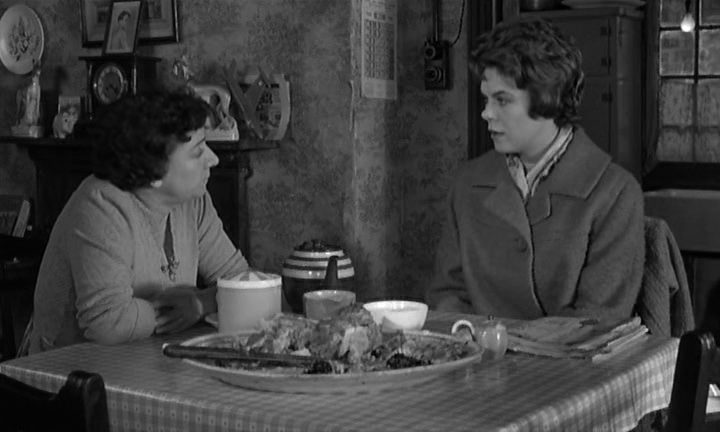
- Freddie Francis’s cinematography

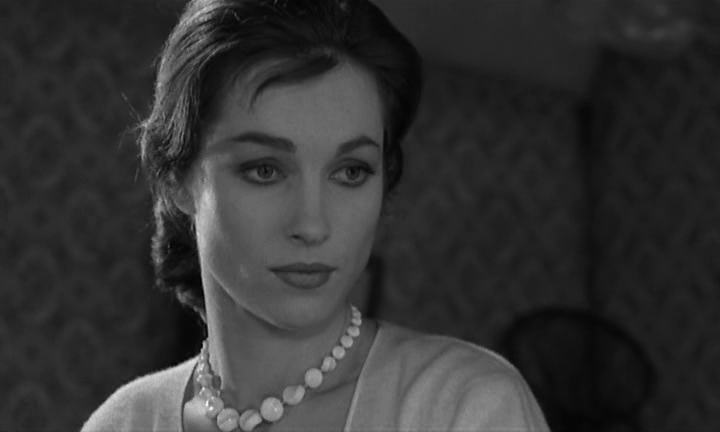
- John Dankworth’s score
Must See?
Yes, for the lead performances and its historical relevance. Listed as a movie with Historical Importance and a Personal Recommendation in the back of Peary’s book.
Categories
- Historically Relevant
- Noteworthy Performance(s)
(Listed in 1001 Movies You Must See Before You Die)
Links:
|
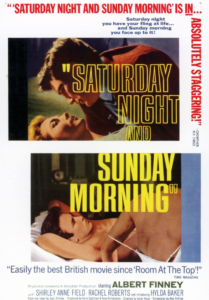







One thought on “Saturday Night and Sunday Morning (1960)”
First viewing. A once-must, for the performances, Reisz’s direction and as a standout in the ‘kitchen sink’ genre.
It’s not a particularly pleasant watch but it’s certainly well-observed – and not as insular as some other ‘kitchen sink’ films. We get more of a feeling of the world surrounding the characters than we get in most of the films in the series. ~ which is also thanks to Sillitoe’s script. And the direction adds a real punch to the narrative in scene after scene.
Probably not a film viewers are likely to return to – but it’s memorable.